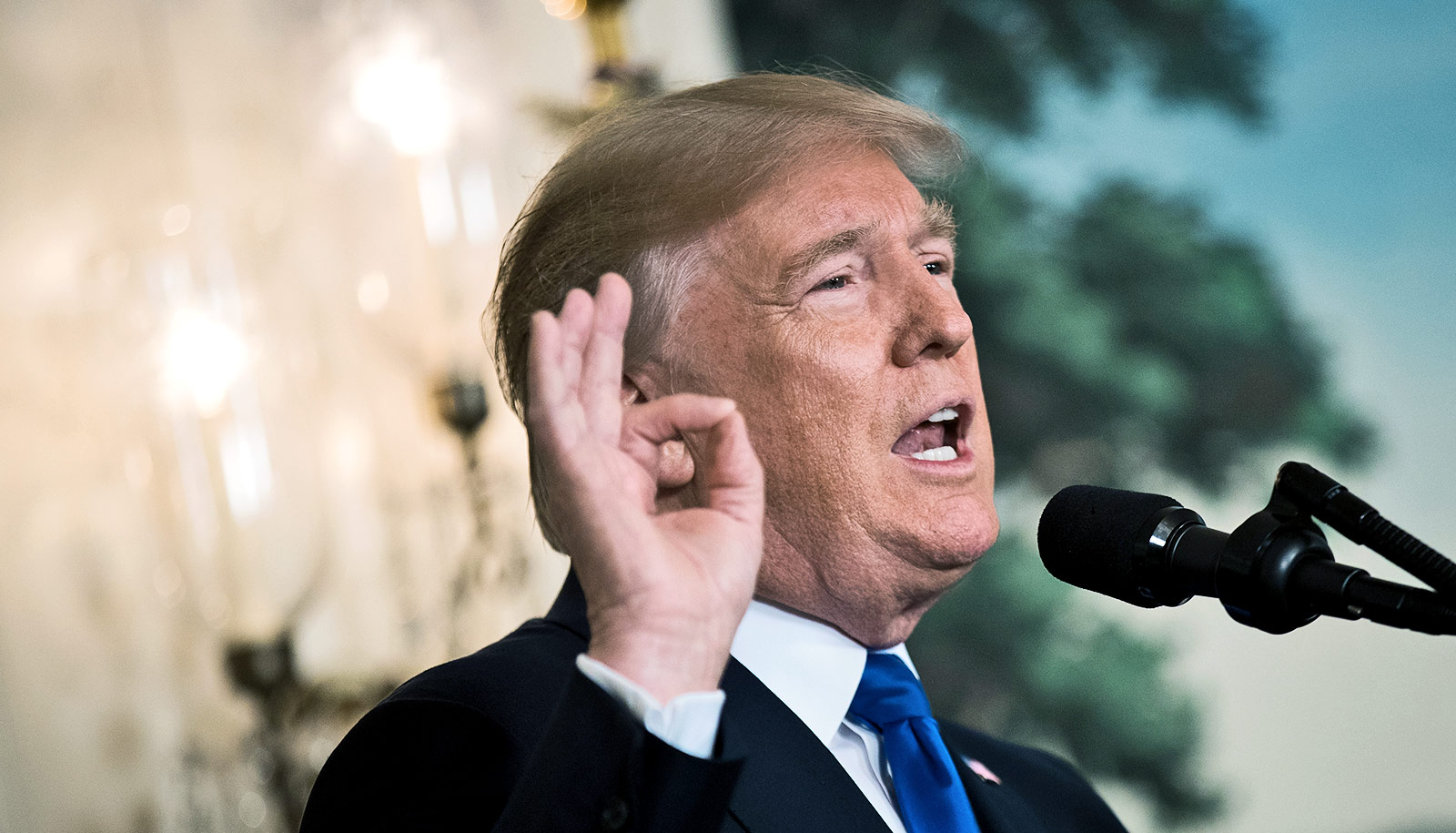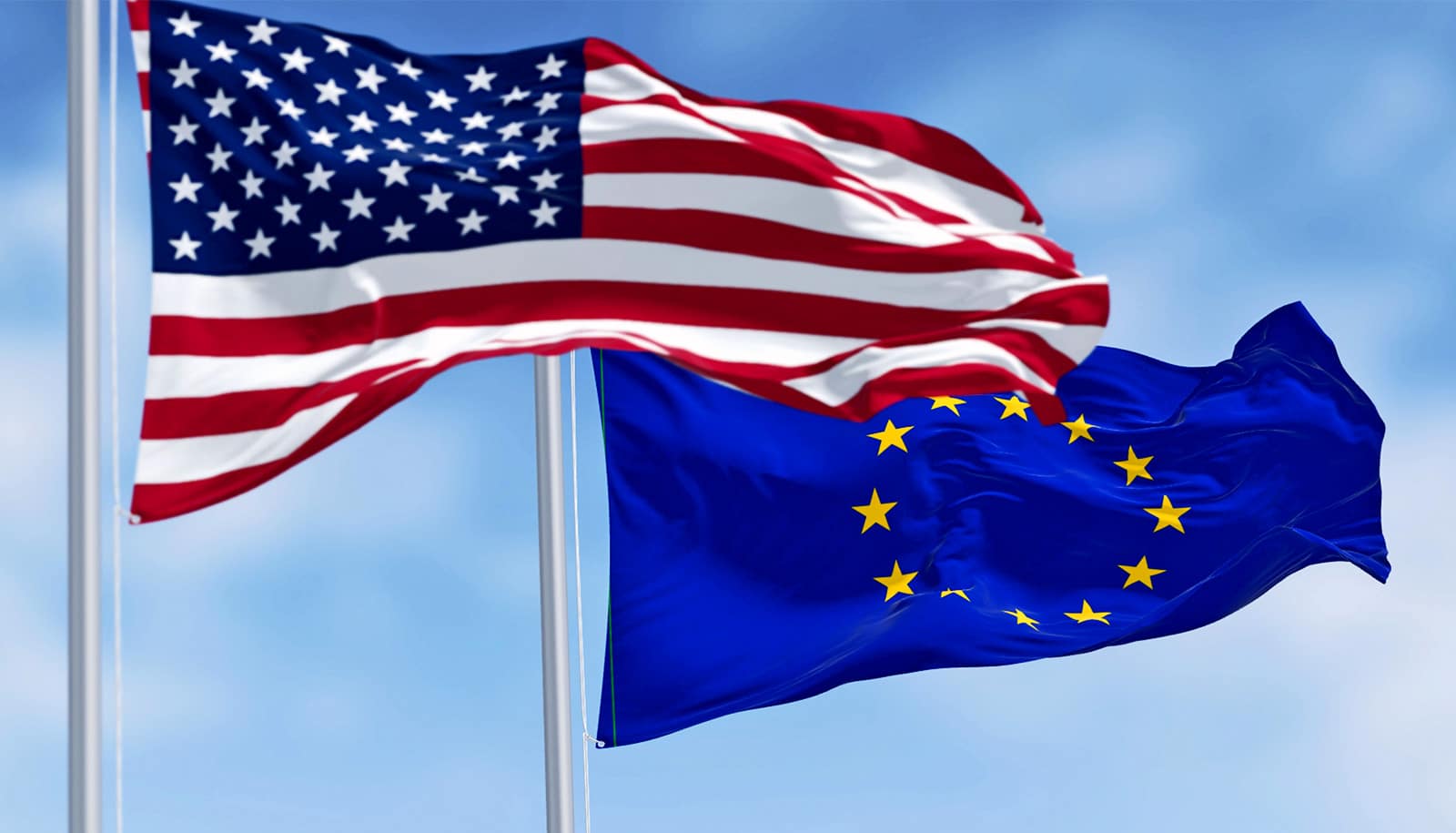Abandoning the Iran nuclear deal would harm the United States’ credibility on nonproliferation issues and make it more difficult to solve the North Korean crisis, scholars warn.
President Trump announced on Friday, October 13th, that his administration does not plan to certify Iranian compliance with the agreement, pushing the decision of whether or not to reimpose sanctions on Iran to Congress.
Signed in 2015, the nuclear deal framework is between Iran and what is known as the “P5+1” group of world powers: the United States, United Kingdom, France, China, Russia, and Germany.
Advocates of the deal say it helped avert a possible war with Iran and a Middle Eastern nuclear arms race. Critics say it will only delay Iran’s march toward a nuclear bomb. The agreement aims to limit Iran’s ability to create nuclear weapons; in return, Iran received relief from economic penalties and sanctions.
The Stanford News Service spoke with two experts—Siegfried Hecker and Abbas Milani—about the deal and the impact backing out could have. Hecker is a top nuclear security expert, former Los Alamos National Laboratory director, and senior fellow at the Center for International Security and Cooperation at Stanford University. Milani is the director of Iranian studies at the university and an affiliate at the Freeman Spogli Institute for International Studies’ Center on Democracy Development and the Rule of Law.
If the US cancels the Iran nuclear deal, could Iran follow a similar path that North Korea has taken?
Hecker: An important lesson the Trump administration should learn is from what happened in October 2002 when the Bush administration couldn’t wait to walk away from the Clinton administration’s “Agreed Framework” deal with Pyongyang. That led to North Korea withdrawing from the Nuclear Nonproliferation Treaty, expelling the international inspectors, and building a nuclear bomb.
Walking away from the Iran deal now could similarly open the doors for Tehran to build a nuclear bomb.
How might this change our relationships with other countries and nuclear powers?
Hecker: The other parties that signed the Iran deal are all strongly in favor of keeping the deal, so it will leave the US even more isolated than it has already become. It is not clear what the effect would be in Israel where Prime Minister Benjamin Netanyahu opposes the deal, but where many voices favor it.
Are the inspection standards in this deal rigorous?
Hecker: The deal has more stringent inspection regimes and rights than previous nuclear agreements. Some in the US call for even more intrusive inspections, such as to defense sites, that essentially no country is willing to have inspected. I think the agreement was able to get more than I ever thought possible.
How is the deal perceived in Iran?
Milani: I think the critical point to know is that there is not one voice or view that reflects the hopes and aspirations of Iran. The radical conservatives among the clergy and the Islamic Revolutionary Guard Corps were critical of the deal. They condemned it as the most “shameful” agreement in modern Iranian history. They lambasted Foreign Minister Mohammad Javad Zarif and President Hassan Rouhani for having made far too many concessions. Ali Khamenei, the Supreme Leader, tried to keep a safe distance from the deal—lest he antagonize his badly needed and shrinking radical conservative base—and yet, at every major turn, endorsed it.
For the regime, faced with calamitous economic challenges, having the deal and ending the sanctions was an existential must. For the same reason, the vast majority of Iranians, facing the drudgeries of a dying economy, favored the deal. They also hoped that the deal would usher in new relations with the world and the US—a possible harbinger for a more free Iran.
How would Iran likely react to a strict enforcement approach often urged by the Trump administration?
Milani: It is not clear what the Trump administration means by a more “strict enforcement.” The agreement has placed fairly rigorous limits on Iran’s nuclear activity given the unique abilities of the International Atomic Energy Agency (IAEA) to monitor the program. Might Iran cheat? It might, but no “strict” enforcement can eliminate such a possibility.
There are, moreover, areas that have by all accounts been consciously left ambiguous in the deal. Is, for example, Iran required to curtail its missile program or contain its regional activities? Iran is adamant that these provisions were never part of the deal. Finally, the Trump administration’s notion that Iran is not abiding by the “spirit” of the deal is hard to enforce. One side’s perceived spirit might be deemed by the other side as nothing but wishful thinking.
Are there ways the deal could be strengthened and Iran’s regional ambitions checked?
Milani: There surely are ways to strengthen any deal. The first step is, by clear indication, that all sides will abide by it. The US is now the only country in the agreement that has indicated its desire to abrogate the deal. You can’t strengthen a deal you no longer are a part of.
It will be a bonanza for the radical conservatives if the US unilaterally walks away from the deal. Khamenei’s mantra that the US can never be trusted will be confirmed, Iran will harvest the economic benefits of the end of sanctions, and radical conservatives will be able to blame their own failed management on US sanctions.
Source: Stanford University



